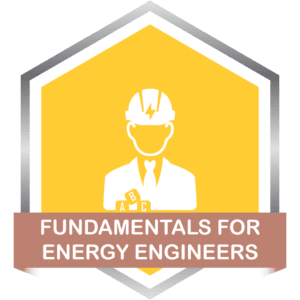About Course
Certified Measurement and Verification Specialist – CMVS Certification

The Beyond Smart Cities has established the Certified Measurement and Verification Specialist program with the dual purpose of recognizing the most qualified professionals in this growing area of the energy industry and raising the overall professional standards within the measurement and verification field.
Individuals specializing in Measurement and Verification (M&V) can help companies implement cost-saving activities for various buildings through clear communication with project partners.
Certified Measurement and Verification Specialists (CMVS) oversee the application of performance and savings verification concepts in utility and government incentive programs, energy savings performance contracts, and CMVS, and they are responsible for measuring how energy management activities impact energy use in an internationally recognized manner.
Who are Certified Measurement & Verification Specialists?
- Energy managers evaluate energy savings.
- Consultants specialized in enhancing a client’s energy performance
- Building owners and managers understand energy savings financing.
- They are either designers of industrial processes or developers of new construction.
The Certified Measurement and Verification Specialist – CMVS Certification training program educates students on various situations, practical issues, system boundaries, baseline considerations, load shapes, statistics, fieldwork, OSHA, NFPA, data accessibility, reporting on M&V projects, IPMVP options, the future of measurement and verification, sample plans, and ESCO’s Guide.
Key Learning Objectives:
- Fundamentals of M&V
- Contexts and M&V Key Concepts
- Standards of M&V Practice
- Practical Considerations for M&V
- Physical and statistical models
- The system boundary in M&V
- Fundamental Performance Measurement Approaches
- Baseline: Additional Considerations
- Whole Facility Approach and Retrofit Isolation Approaches
- Implementing baseline models and data.
- Granularity and load shapes
- Using statistics to communicate uncertainty.
- Metering consideration and calibration
- Fieldwork involves formal accreditation, safety, OSHA, and NFPA.
- Data accessibility, communication, and valuation.
- Reporting on M&V Projects
- Definitions of IPMVP options and practical M&V challenges
- Perform M&V calculations and M&V planning in practice.
- We provide a sample M&V plan, report, and other M&V applications.
- ESCO’s Guide to Measurement and Verification
- Future of measurement and verification.
A Certified Measurement and Verification Specialist (CMVS) is someone who uses the ideas of measurement and verification to figure out how energy management activities improve the performance of a wide range of systems that use energy, such as buildings or industrial processes.
What Does a CMVS Do?
The individual oversees globally acknowledged techniques to measure the effects of energy consumption.
- Apply performance and savings verification concepts in various contexts.
- Clear communication with project partners helps companies implement cost-saving activities.
Krishnaji Pawar, CEO and founder of Beyond Smart Cities, is creating the Certified Measurement and Verification Specialist – CMVS Certification training course, specializing in sustainable design strategies for green building certification systems, energy management, energy audits, building commissioning, and environmental impact assessments.
The CMVS Certification certifies an individual’s understanding of M&V theory implementation and enhances professional standards in energy efficiency and performance measurement and verification. The certification includes a 100-question practice exam and unique tools to help energy management professionals create customized study plans and achieve professional development goals. These tools ensure the effectiveness of measurement and verification specialists.
CMVS Certification Value
- It enhances career prospects through higher pay, increased responsibilities, and benefits.
- We provide the knowledge and technical application of energy management, measurement, verification, and efficiency processes.
- Prioritizes professional growth and development.
- Enhances professional credibility.
- Increases job opportunities.
Other Related Courses
Certified M&V Professional – CMVP Exam Question Bank
The Certified Measurement and Verification Professional – CMVP Exam Question Bank aids energy management and efficiency professionals in creating personalized study plans to achieve professional development goals.
Key Learning Objectives
- Over 800 questions in eight practice exams.
- Understanding reasoning and related knowledge areas.
- Familiarity with energy management acronyms.
- Recognizing strategies and making smart choices.
- Experimenting with the CMVP exam.
- Responding to circumstances.
- Consideration of practice test as part of education.
- New CMVP: 162+ Key Terminology Flash Cards.
Course Content
Section 1: Introduction and Course Outline
-
27:08
-
L1_17CMVSiC_CMVS Certification – Handout
Section 2: Contexts and M&V Key Concepts
Section 3: Standards of M&V Practice
Section 4: Practical Considerations for M&V
Section 5: Physical and statistical models
Section 6: System Boundary in M&V
Section 7: Fundamental Performance Measurement Approaches
Section 8: Baseline: Additional Considerations
Section 9: Special Baseline Considerations for Utility Programs
Section 10: Whole Facility Approach
Section 11: Retrofit Isolation Approaches
Section 12: Implementing the baseline model and data from the reporting period
Section 13: Granularity and load shapes
Section 14: Using Statistics to Communicate Uncertainty
Section 15: Metering Consideration and calibration
Section 16: Fieldwork: formal accreditation, safety, OSHA, and NFPA
Section 17: Data accessibility, communication, and valuation
Section 18: Reporting on Measurement and Verification (M&V) Projects
Section 19: Definitions of IPMVP Options
Section 20: Practical M&V Challenges
Section 21: M&V Calculations and M&V Planning in Practice
Section 22: Sample M&V Plan
Section 23: Sample M&V Report
Section 24: ESCO’s Guide to Measurement and Verification
Section 25: Other M&V Application
Section 26: The future of measurement and verification
Section 27: Summary and Resources
Certified Measurement and Verification Specialist – Practice Test V5.1
Student Ratings & Reviews



